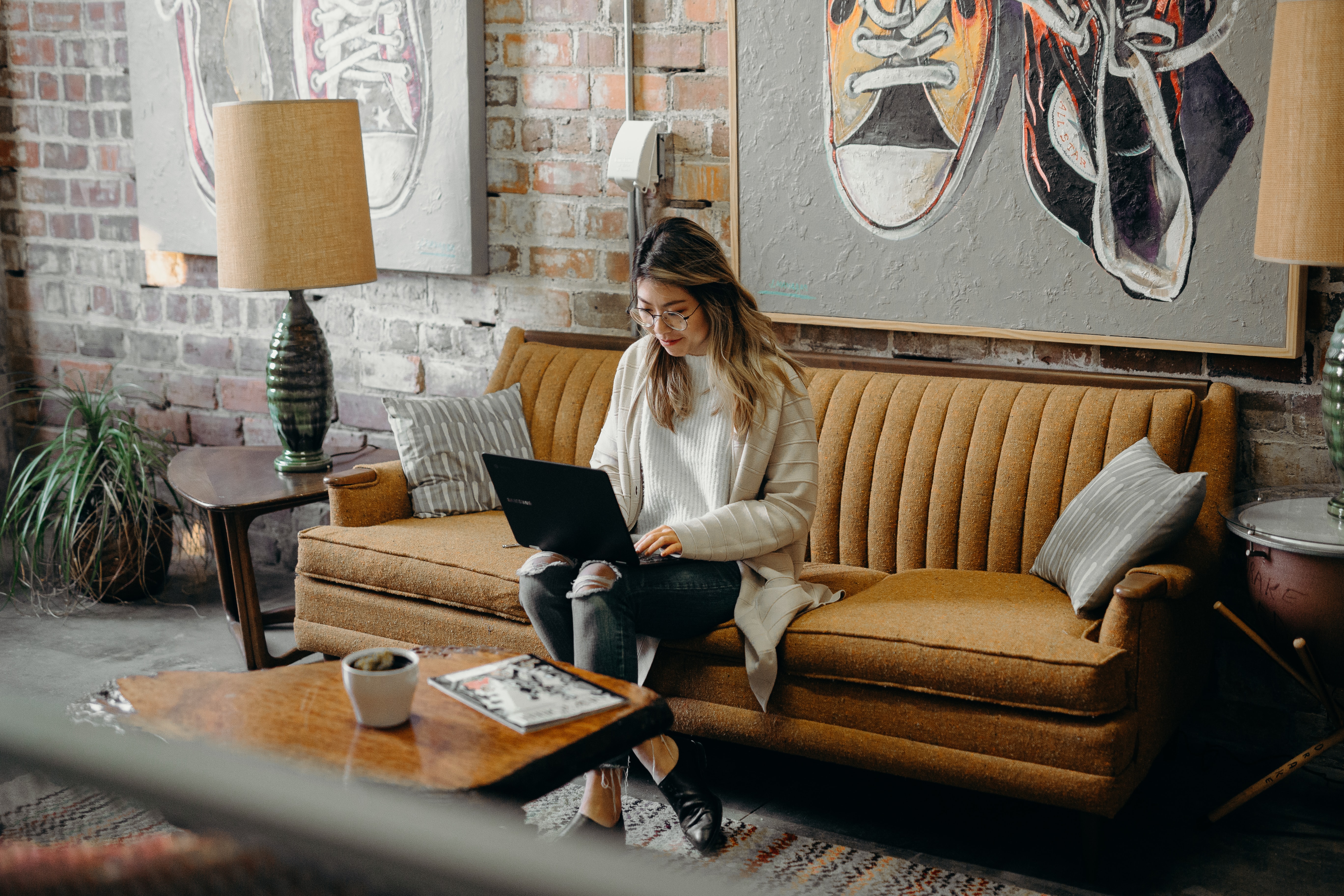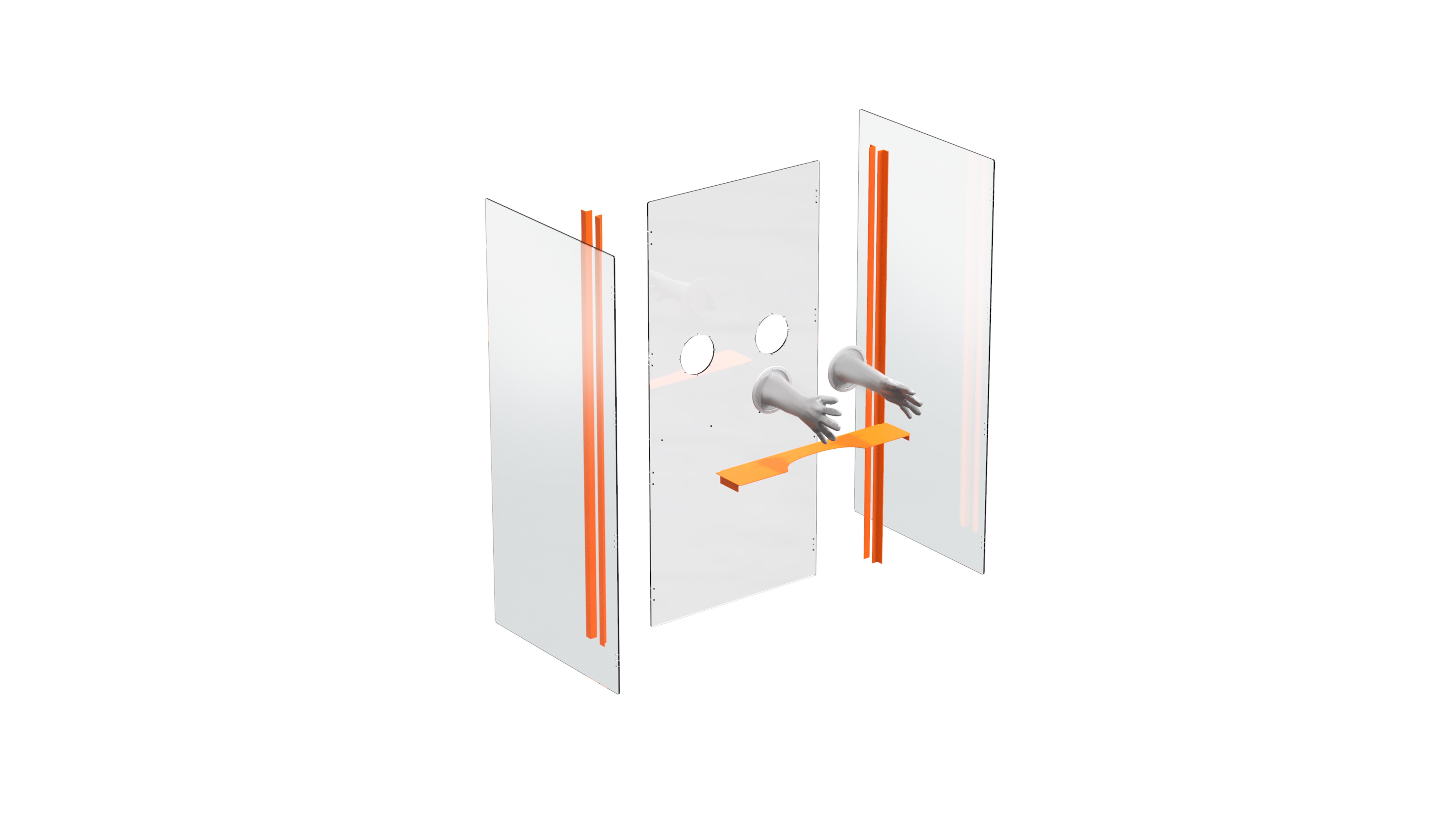The COVID-19 crisis has forced businesses to rethink how they communicate and work, all the while creating new opportunities to thrive.
Mastermind designer and entrepreneur Yves Béhar has created groundbreaking smart devices that seamlessly combine technology and design, changing the way we live and work. His latest invention is Forme, an AI-powered smart mirror that transforms into a complete body and mind fitness studio, that has been hailed as the future of home fitness. It is one of the many concepts that Béhar’s company, fuseproject, is developing in order to adapt to people’s needs in real-time.
In the fifth episode of ROOM’s “The Workplace of Tomorrow” podcast series, the San Francisco-based Béhar, who is in his sixth week of quarantine, reveals how the COVID-19 crisis has forced many companies to realize that they need smarter work-life balance, with more humanity and transparency in the workplace. It’s also provided unexpected opportunities for start-ups, who are willing to pivot to meet the rapidly changing demands of our world today.
During the COVID-19 crisis, we have seen business and home life collide during virtual meetings and live chats, revealing a sense of humanity and vulnerability that isn’t typically seen in the workplace. “When you see people on Zoom, and their families, and their lives, and the interruptions, they’re the same things we have to juggle on a daily basis—on a normal day, not on a COVID-19 day,” says Béhar. “It brings a moment of informality, and for me, less formality has meant more humanity.”
Transparency and honesty are integral to a company’s success.
A sense of humanity and openness is increasingly important to consumers who are demanding more from the businesses they choose to support or, in some cases, reject. “We want to connect to companies that are supportive of the things that we believe in,” he explains. People are now aware of how and where businesses make their products, and how their footprint impacts the environment. Béhar says it’s no longer adequate for a company to say it makes the best products, but that customers also want more transparency and authenticity. He explains, “It’s about communicating that you are doing your best and that while there is more to do, you are innovating and you are being considerate, and you want to do better in the future. I think that communication is much more relatable, and hopefully, what we’ll see a lot more of in the near future.”
Businesses that use this crisis as a time to reflect on their corporate culture and how to best communicate their values will benefit when consumers return to spending. As we have been witnessing since even before this crisis, consumers are exercising their power with their wallet, and are choosing to support businesses that share those values.
The COVID-19 crisis presents opportunities for companies willing to pivot and respond to the new landscape.
Even fledgling start-up companies can use this crisis as a time to hit the reset button, says Béhar, a serial entrepreneur himself who is currently advising about a dozen new businesses, and is working on a few of his own. “I’ve seen over and over that in times of deep crisis, the best startups and the best entrepreneurs, really jump forward and take the risk to put something together that is distilled by the times that we live in.” In so many ways, he says, the COVID-19 crisis is putting a lens on what is needed now and in the future.
“I would say this is a good time for startups who are struggling to pivot or create something new,” Béhar explains. Some startups are finding their reasons for existence because of the crisis, and others have had to reevaluate and quickly adapt. And, adapting is more critical than ever before in this unpredictable and changing environment. “Whether you have to adapt and change to the current times we live in as a company, or whether as an individual, that’s a sign of intelligence.”
Technology has transformed the design business, and there are no limits.
The designer has proven he can deliver trailblazing designs and solutions by adapting to and adopting the latest technology. As a resident of Northern California for the past 20 years, he’s witnessed the rise of Silicon Valley firsthand and benefited from those technological advancements. “So much of what Silicon Valley has created over the last three decades has made design work so much more potent, more attainable, and more reachable,” he explains. Silicon Valley has provided the tools for the production of design, creativity, prototyping, 3-D printing and machining, along with other advancements. “Everyone at fuseproject feels empowered to build a prototype quickly to render their ideas quickly and put their concepts forward.”
“In many ways I think that the digital tools that Silicon Valley has developed have really been nothing short of miraculous, in terms of our ability to produce great works of design,” observes Béhar.
Still, the designer tempers his own personal use of technology. During the crisis, it’s more evident that we are dependent on communication channels like Zoom and Slack to collaborate, but those tools can also be a distraction and add to the multiple layers of communications that we have with email, texting, and more. “We need to know when to turn some of that off and focus on the work and the collaboration, but then use the transparency of those tools to show progress and to enable everyone to participate and chime in.” To minimize his distractions, Béhar turns off notifications on applications like WhatsApp, Twitter, and Instagram. “We really need to find ways to lower the level of distraction, because that continues to be a major source of interruption.”
It’s Béhar’s willingness to take calculated risks and embrace technology, while at the same time keeping a sense of humanness at the core of his business and design philosophy, that has contributed to his wide-ranging success. He uses his passion for surfing as a metaphor for his business philosophy: “Not every surfing session is great but it’s about being in the element and enjoying that moment. I think entrepreneurship isn’t that dissimilar, because you never know if it’s going to turn out to be a great success or a great startup,” he says. “But you’re compelled to do it because you feel it’s going to make a difference, you feel it might be important, and you want to take that risk with the certainty that you will learn something, and that you will grow from it. I think that is the fundamental nature of surfing, and maybe not that different from being an entrepreneur.”

